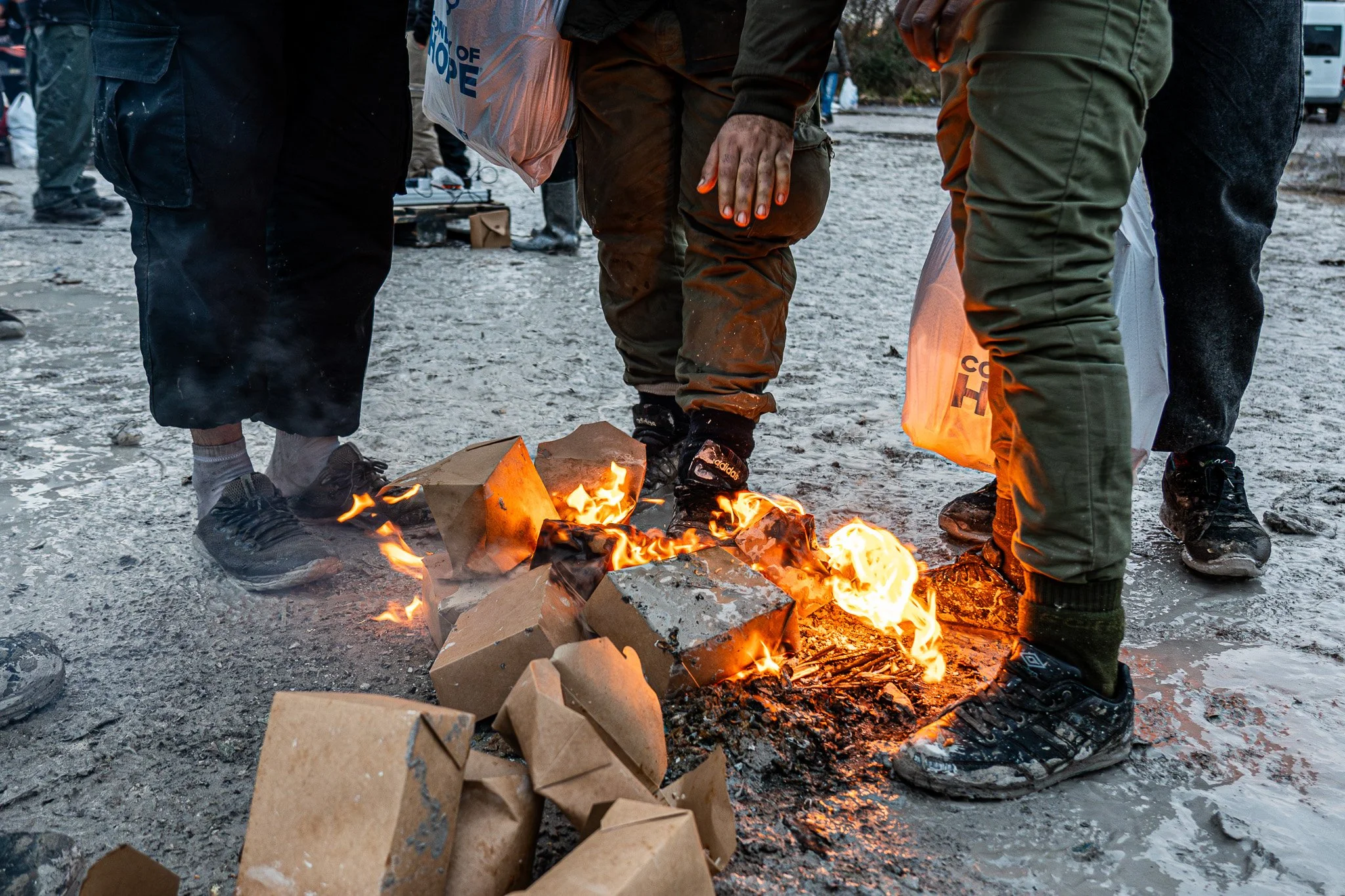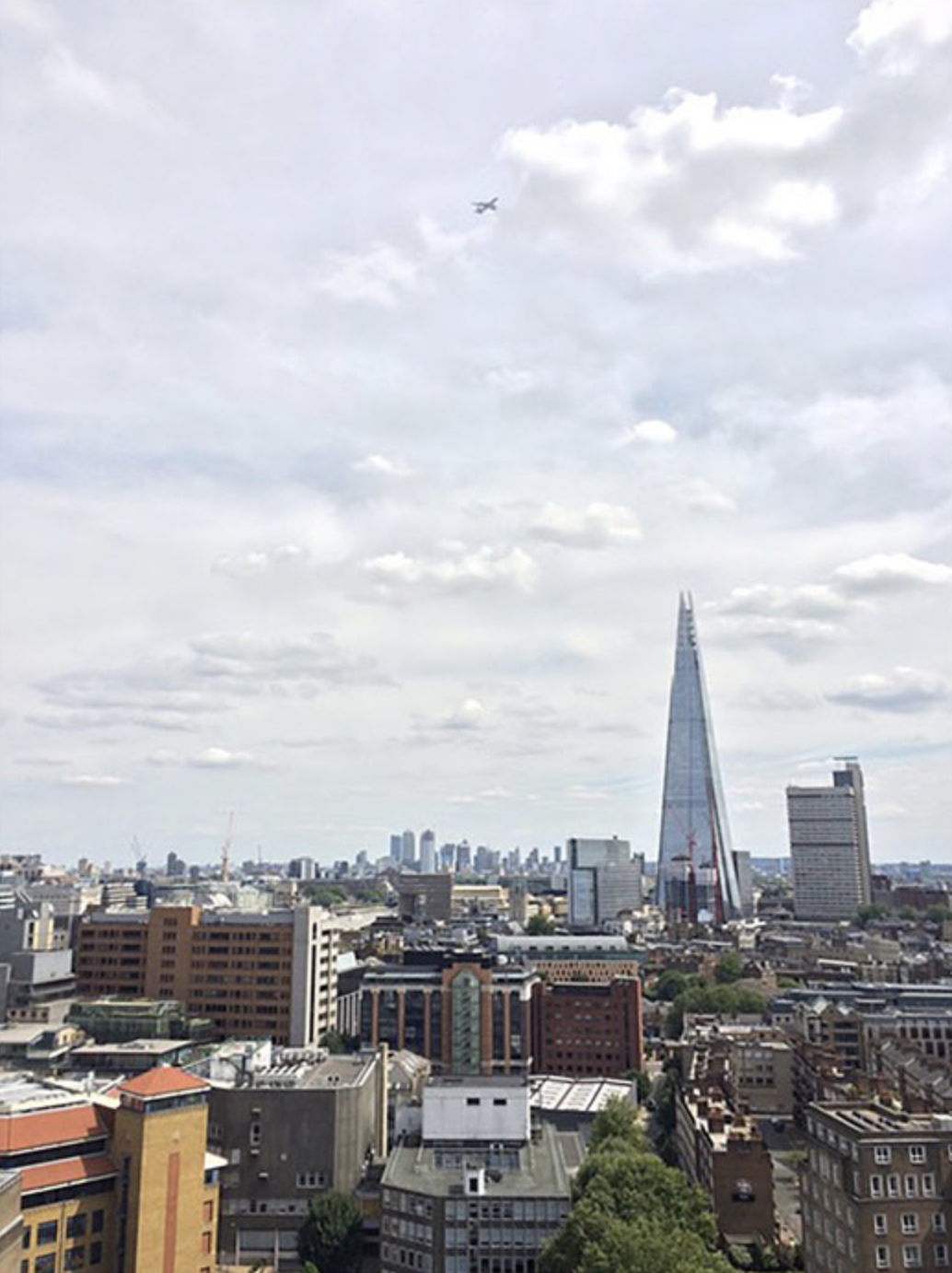Small campfire in the refugee camp in Calais, 2023. The lack of safe options forces many refugees into taking dangerous routes for the chance of asylum in the UK and elsewhere around the world. Photo by Isabel Soloaga.
Exploring Social Remittances and Transnational Activism Amongst Transgender Refugees
Research article published online in Frontiers in Global Dynamics, 2021.
Based on research completed as part of the SOGICA (Sexual Orientation and Gender Identity Claims of Asylum) Project funded by the European Research Council (ERC). I continue to be involved in related work as a Research Fellow at the University of Sussex School of Law, Politics and Society.
Introduction
Alana Eissa fled Malaysia after intolerance of her transgender identity led to multiple attempts on her life, both by strangers and her very own parents. Today, Eissa is a leader in her London community, speaking regularly at activist rallies and an active member of the Board of Directors at MicroRainbow, a nonprofit that serves the needs of queer refugees at 11 locations in the United Kingdom. She didn’t set out to be an activist. Instead, the attacks she endured on account of her identity pushed her to find refuge within the activist community in her home country; later, transnational mobility proved essential to her survival. In both Malaysia and the United Kingdom, Eissa has found her rights to security and healthcare unprotected. She turned to activism, which she saw as her only option. While many academics have argued that refugees and migrants arriving in the United Kingdom and the United States find new protections and therefore opportunities for activism in “safe” countries abroad, this article suggests that this is, at best, only part of the picture. At worst, this assumption glosses over the grim reality in which migrants generally, and transgender refugees in particular, are frequently victims of violence in receiving countries. Thus, transnational activism proves essential. As Eissa explained to me over a Zoom interview from her London flat in June 2020, “Activism for my own freedom is what I’m involved in.”
I argue that systemic oppression, racism, and transphobia in receiving countries often necessitates the maintenance of transnational ties and pushes refugees into roles as activists in receiving countries. This paper highlights how the activism and political engagement of transgender refugees travel with them across borders. Encountering deeply transphobic surroundings in both their origin countries and within receiving countries, transgender refugees turn to activism to survive individually and aid other community members to do the same. To do so, they rely on interpersonal relationships and the transfer of social remittances to maintain long-lasting, impactful transnational ties. Here, I consider social remittances to include norms, practices, identities, social capital, and ideas circulating between migrants and their origin communities. Social remittances inform migrants’ understanding of and interactions within host country societies; additionally, they can have far-reaching effects on the norms and values held within the origin country (Levitt, 2001).
I conclude by exploring how transgender refugees challenge traditional mechanisms used by nation-states to regulate their populations. Firstly, transgender refugees cross geographic borders, leave their origin country, and enter potential host countries to find safety. Secondly, in their nonconformity to gendered expectations, transgender individuals call into question the assumed modes of reproduction of the state and its citizens. As such, this paper calls into question geography and gender, two vectors harnessed by nation-states to control their citizens. Located at the margins of these borders, transgender refugees provide an ideal case study for examining these particular forms of governmental control.
Analysis of the lives and practices of transgender refugees reveals much about the broader system of “border” politics, defined beyond the narrow constraints of geography. In a careful analysis of this population, so often the victims of controversy and violence, I follow Foucault’s observations of biopower as something shaped through discourse, enacted on all levels of society through mechanisms “that, beginning in the 18th century, took charge of men’s existence, men as living bodies” (1978: 89). I site the transnational mobilization of transgender refugees as one of many “points of resistance” present throughout power networks, one which uniquely challenges the power of nation-states to regulate populations through geographic borders and gendered norms (Foucault 1978: 95).
This paper applies literature on social remittances and transnationalism to the particular case of transgender refugees through careful analysis of three case studies. In addition, Alana Eissa’s photographs of her home and activist community in London illustrate the intensely personal and precarious nature of her activism. This study offers scholars of migration, politics, and queer theory a new, intimate and often overlooked perspective on transnational activism in today’s world. In sum, it reveals how the transnational activism of transgender refugees living in receiving countries often stems directly from continued persecution rather than the increased level of freedom or protections found there. These individuals engage in activism through intensely personal networks, beginning with chosen families, often consisting of fellow queer refugees facing similar challenges. The role of grassroots organizations led by and dedicated to providing safe spaces for transgender refugees cannot be understated. Considering the typical lack of national protocols and sensitivity toward transgender refugees in receiving countries, these community organizations provide essential platforms for this diverse group of resilient individuals to fight for access to healthcare and fundamental human rights.
Full article published in the online research journal, Frontiers in Human Dynamics.
‘‘ View of London city overlooking the Shard and Canary Wharf in the distance.
My city that I'm falling in love with.''
- Photo and quote by Elana Eissa


